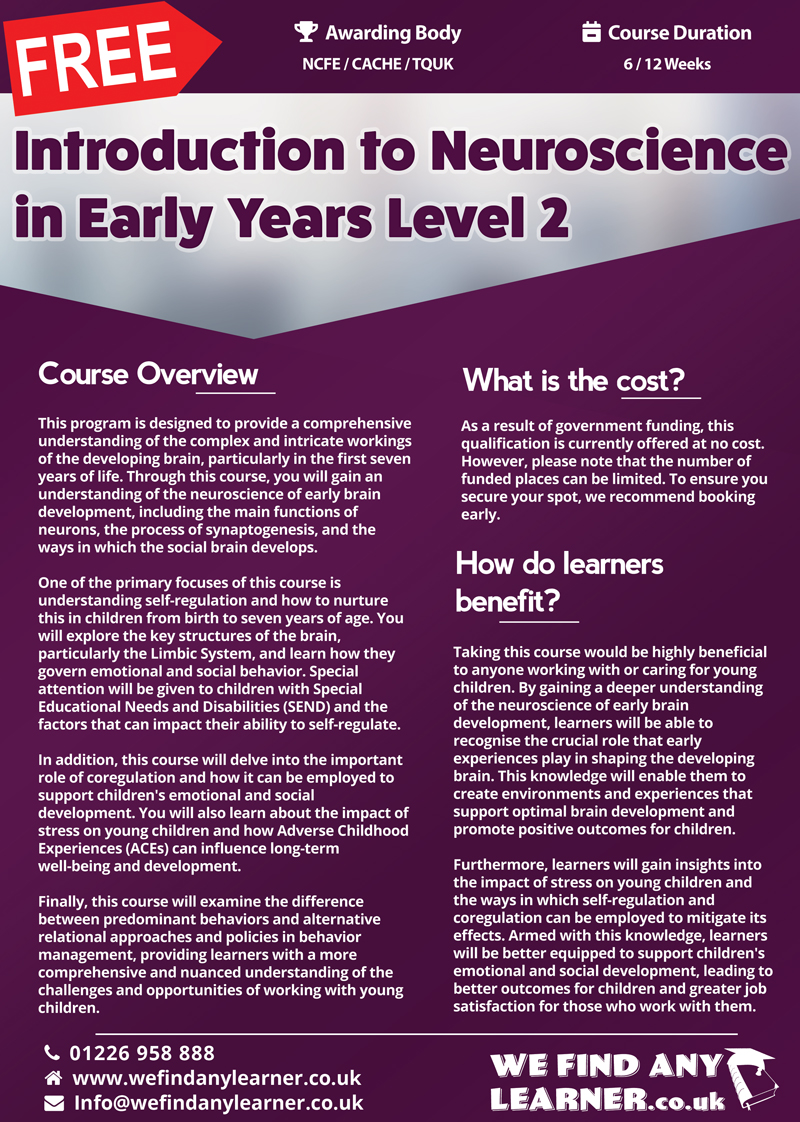Course Fees
Free
Course Delivery
Online
Course Duration
6 to 12 Weeks

Awarding Body
NCFE / CACHE / TQUK
Introduction to Neuroscience in Early Years Level 2
Welcome to the Introduction to Neuroscience in Early Years Level 2 course! This program is designed to provide a comprehensive understanding of the complex and intricate workings of the developing brain, particularly in the first seven years of life. Through this course, you will gain an understanding of the neuroscience of early brain development, including the main functions of neurons, the process of synaptogenesis, and the ways in which the social brain develops.
One of the primary focuses of this course is understanding self-regulation and how to nurture this in children from birth to seven years of age. You will explore the key structures of the brain, particularly the Limbic System, and learn how they govern emotional and social behavior. Special attention will be given to children with Special Educational Needs and Disabilities (SEND) and the factors that can impact their ability to self-regulate.
In addition, this course will delve into the important role of coregulation and how it can be employed to support children’s emotional and social development. You will also learn about the impact of stress on young children and how Adverse Childhood Experiences (ACEs) can influence long-term well-being and development.
Finally, this course will examine the difference between predominant behaviors and alternative relational approaches and policies in behavior management, providing learners with a more comprehensive and nuanced understanding of the challenges and opportunities of working with young children. By the end of this course, you will have a deeper understanding of the neuroscience of early brain development and the skills and knowledge to support children’s emotional and social development.
How do learners benefit?
Taking this course would be highly beneficial to anyone working with or caring for young children. By gaining a deeper understanding of the neuroscience of early brain development, learners will be able to recognise the crucial role that early experiences play in shaping the developing brain. This knowledge will enable them to create environments and experiences that support optimal brain development and promote positive outcomes for children.
Furthermore, learners will gain insights into the impact of stress on young children and the ways in which self-regulation and coregulation can be employed to mitigate its effects. Armed with this knowledge, learners will be better equipped to support children’s emotional and social development, leading to better outcomes for children and greater job satisfaction for those who work with them. Overall, taking this course is an investment in both personal and professional growth that will have a lasting impact on the lives of young children.

